From snoring partners to dry mouths in the morning, sleeping with the mouth open is both common and often problematic. While most people don't spend much time thinking about how they breathe at night, the way you breathe impacts your sleep quality, oral health, and even your energy during the day. Nasal breathing has been repeatedly shown to offer significant advantages over mouth breathing—yet, making the switch isn't always straightforward, especially during sleep.
Mouth taping has emerged as an intriguing practice designed to encourage nose breathing at night. It’s not about sealing your mouth with duct tape; rather, specialised products like MyoTape have made the method practical and accessible. But is it worth considering? Let’s take a critical look at how mouth tape can shift your nightly habits, and what differentiates MyoTape from improvised solutions.
Why Does Mouth Breathing Matter?
Mouth breathing is far from harmless. It's surprisingly common in adults and children, and it comes with a series of unwelcome side effects, including potential links to conditions like sleep apnea:
- Disturbed sleep, lighter sleep stages, and frequent waking
- Dry mouth and throat, leaving you parched in the morning
- Worsened snoring, which disrupts everyone’s rest
- Increased risk of dental issues, tooth decay, and gum disease
- Heightened susceptibility to sinus infections
Nasal breathing, by contrast, filters and humidifies air, regulates airflow, and promotes optimal oxygen uptake. The nose produces nitric oxide, which has been shown to support immune function and blood flow. Night-time mouth breathing skips these benefits.
How Mouth Tape Works
The principle behind mouth taping is refreshingly simple: by keeping the lips sealed, mouth tape nudges the body to breathe through the nose. The idea is not to act as a gag or a restraint, but rather as a gentle reminder for the body to do what it's naturally designed to do.
Many who try mouth taping even report increased sleep depth and reduced arousals at night. This is especially true for people dealing with snoring, mild sleep apnoea, or waking up with a sore, dry mouth. It’s not a replacement for medical intervention in serious cases, but for many, it’s an effective support.
Not All Mouth Tape Is Created Equal
Before reaching for the nearest roll of tape, know that not all products are safe or suited to nightly use. Standard household tape can irritate skin, leave residue, and may even be unsafe if too adhesive or difficult to remove.
Products designed specifically for mouth taping, like MyoTape, address these drawbacks. MyoTape is not just a strip of sticky paper—it's made from hypoallergenic, skin-friendly material, engineered for easy release and minimal discomfort.
Here’s a quick comparison showing how MyoTape stacks up against typical alternatives:
| Type of Mouth Tape | Skin Irritation | Removal Safety | Breathability | Designed for Sleep |
|---|---|---|---|---|
| Household tape | Frequent | Potentially risky | Poor | No |
| Medical tape | Occasionally | Safer | Varies | Sometimes |
| MyoTape (designed tape) | Rare | Highly safe | Good | Yes |
MyoTape stands out for comfort and safety, with a design that surrounds the mouth (rather than covering the lips directly), reducing anxiety for those worried about feeling trapped.
Who Can Benefit from Mouth Taping?
Not everyone who sleeps with their mouth open does so for the same reason. Mouth tape isn’t a one-size-fits-all intervention, and it won’t be appropriate for everyone (for example, those with severe sleep apnoea or significant nasal obstruction should consult a doctor first).
Still, many adults and even older children have found mouth taping beneficial, especially those who:
- Regularly wake up with a dry mouth or sore throat
- Struggle with loud snoring or have sleep apnea that disrupts sleep
- Notice congestion or sinus issues in the morning
- Find themselves tired despite adequate sleep duration
Athletes and the health-conscious have also started to use mouth tape, seeking improved recovery, better oral health, and increased energy on waking.
What Makes MyoTape Unique?
Unlike makeshift solutions that place tape directly over the lips, MyoTape uses a frame-like design that gently surrounds the mouth. This leaves the lips untouched, reducing skin sensitivity and making removal easy in case of discomfort.
Here are some features that make MyoTape especially appealing:
- Hypoallergenic material: Designed to minimise allergic reactions
- Stretch and comfort: Flexible enough to move with facial muscles
- Allows speech and water sipping before sleep: You're not completely sealed in
- Reassuring for beginners: Many fear the feeling of being taped; MyoTape adjusts to gradual use
MyoTape is also available in different sizes, accommodating children and adults alike.
How to Tape Your Mouth Safely
Safety is key. Begin with a trial run during the day to get used to the sensation. Never force your lips closed if you struggle to breathe through your nose—address any nasal congestion or consult a health professional first.
Here are some steps to follow:
- Clean and dry the skin around the lips for optimal adhesion.
- Apply the tape following the product’s specific instructions (typically, a frame around the lips rather than over them).
- Test removal before sleep to ensure comfort.
- Start with short use—perhaps during a daytime nap—and gradually increase use as comfort grows.
It’s important to listen to your body throughout. If you feel claustrophobic or panicked, remove the tape straight away.
Myths and Common Concerns
Putting tape around your mouth can sound odd, even risky, at first. Common worries include:
- What if I need to cough or speak? With products like MyoTape, removal is simple, and the lips are not fully sealed shut, making it more comfortable than you might imagine.
- Will it make me stop breathing? If you're unable to breathe through your nose, mouth taping isn’t for you—always resolve any blockages first. MyoTape is designed to be easy to peel off even half-asleep.
- Is it for everyone? While useful for many, people with diagnosed sleep apnea, severe allergies, or certain medical conditions should seek professional advice prior to trying mouth taping.
Wider Benefits of Nose Breathing Overnight
Those who successfully shift to nasal breathing at night often comment on knock-on benefits that go far beyond a peaceful night's sleep. Among these:
- Fresher breath, owing to reduced bacteria growth that occurs during mouth breathing
- Fewer sore throats or swollen gums
- More restorative sleep, with less mid-night waking
- Less need for night-time water or bathroom trips
- Quieter bedrooms—a relief for many couples
Nose breathing also aligns with what physiologists describe as "functional breathing": efficient, low-resistance, and linked to improved heart rate variability. These subtle changes can add up to significant differences in wellbeing.
Integrating Mouth Taping Into a Sleep Routine
Adopting mouth taping is not just about sticking on a patch and crawling into bed. Creating an environment that promotes nose breathing can involve small but important shifts:
- Regular saline rinses or nasal strips to clear congested airways
- Raising the head of the bed if breathing feels obstructed
- Mindfulness or breathing exercises to reinforce new habits
- Choosing breathable, comfortable pillows and bedding
MyoTape complements these strategies, acting as a gentle nightly coach.
When to Consult a Specialist
It’s wise to be aware of medical issues that might be at play. Nasal polyps, deviated septum, blocked sinuses or unresolved allergies often need treatment to allow for successful nose breathing. Children with frequent mouth breathing should especially be reviewed by a GP or orthodontist, as it can impact facial development.
If you find difficulty adapting to mouth taping, or if sleep feels even less restorative, it’s time to seek personalised guidance.
A New Take on a Simple Habit
Sleeping with lips sealed isn’t as odd as it sounds. The evidence supporting nasal breathing’s impact on mood, alertness, and even cardiovascular health is gaining momentum. Mouth tape, and MyoTape in particular, offers a supportive way to retrain a habit that’s hard to kick at night.
Like many habits, the shift to nasal breathing may take persistence and experimentation. MyoTape provides a thoughtful, comfortable, and reliable tool to help make mouth taping safe and approachable, supporting better sleep and, with it, better days.

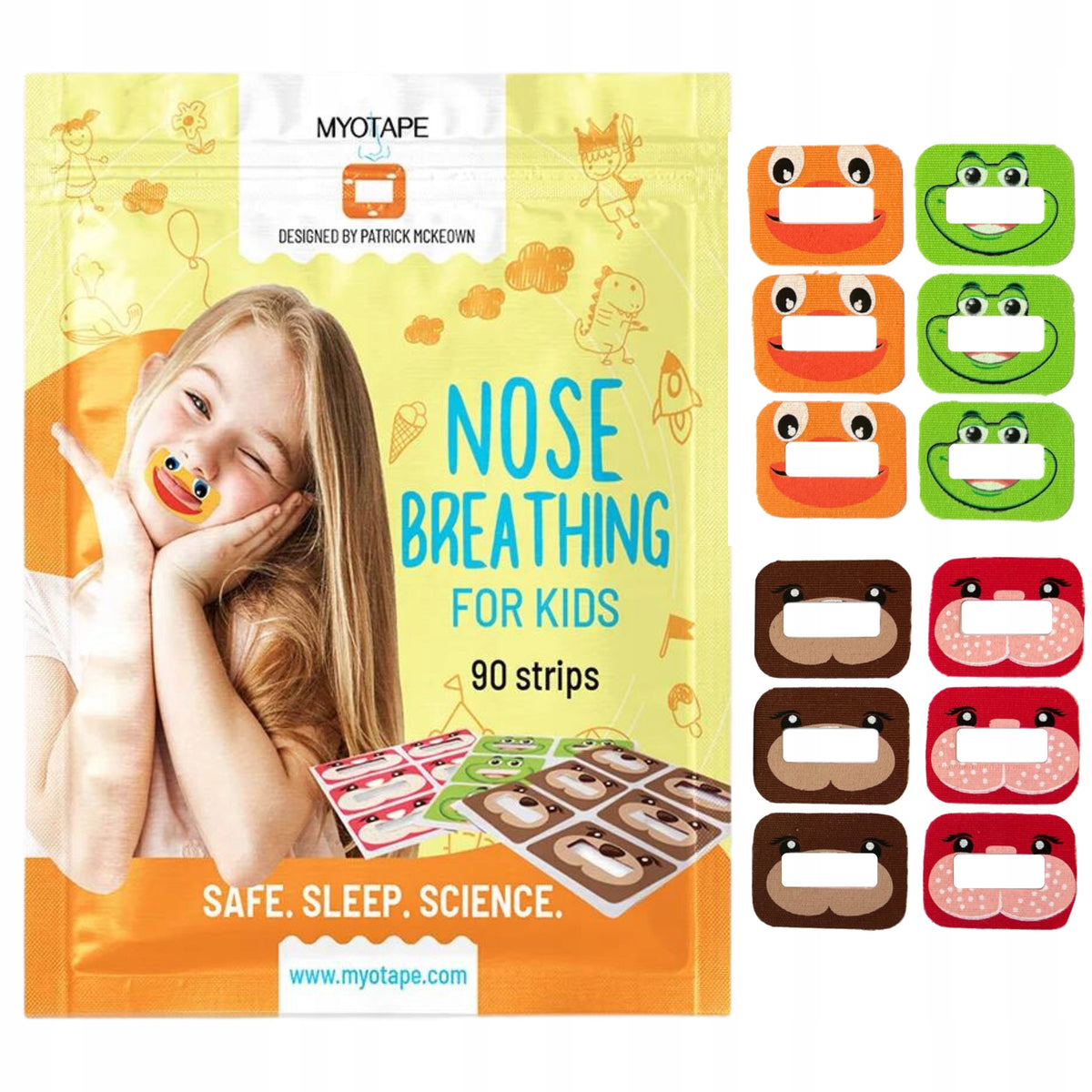
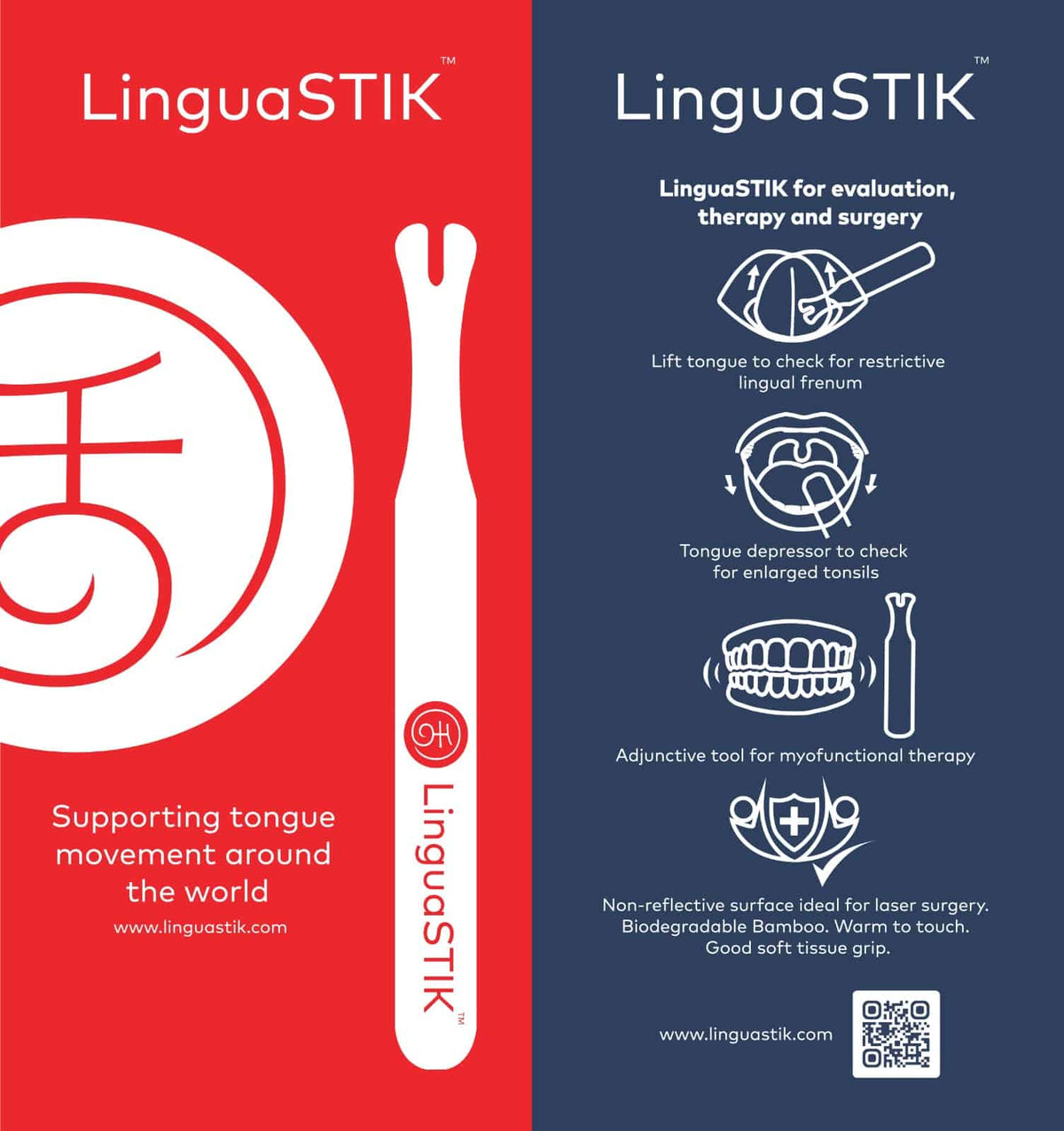

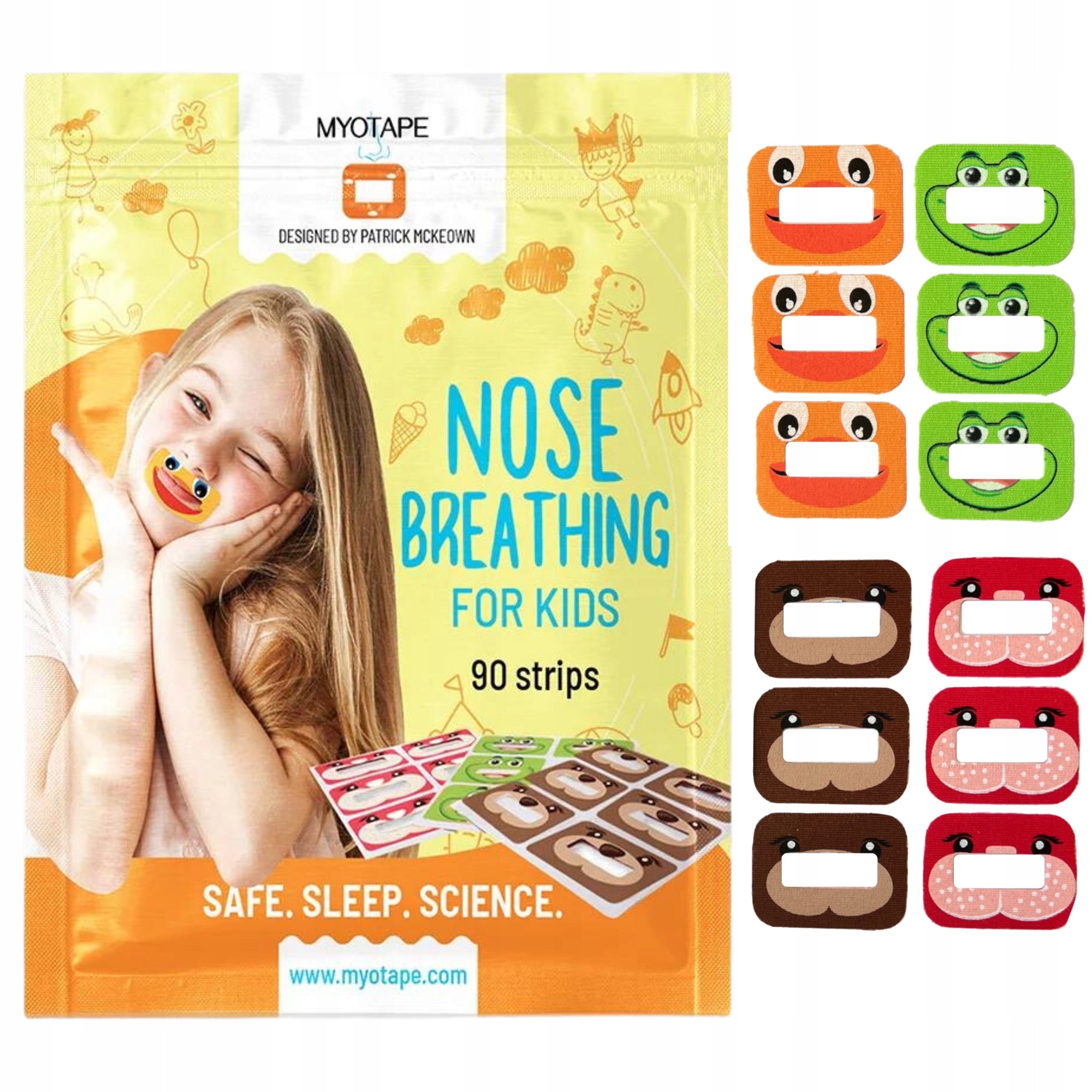
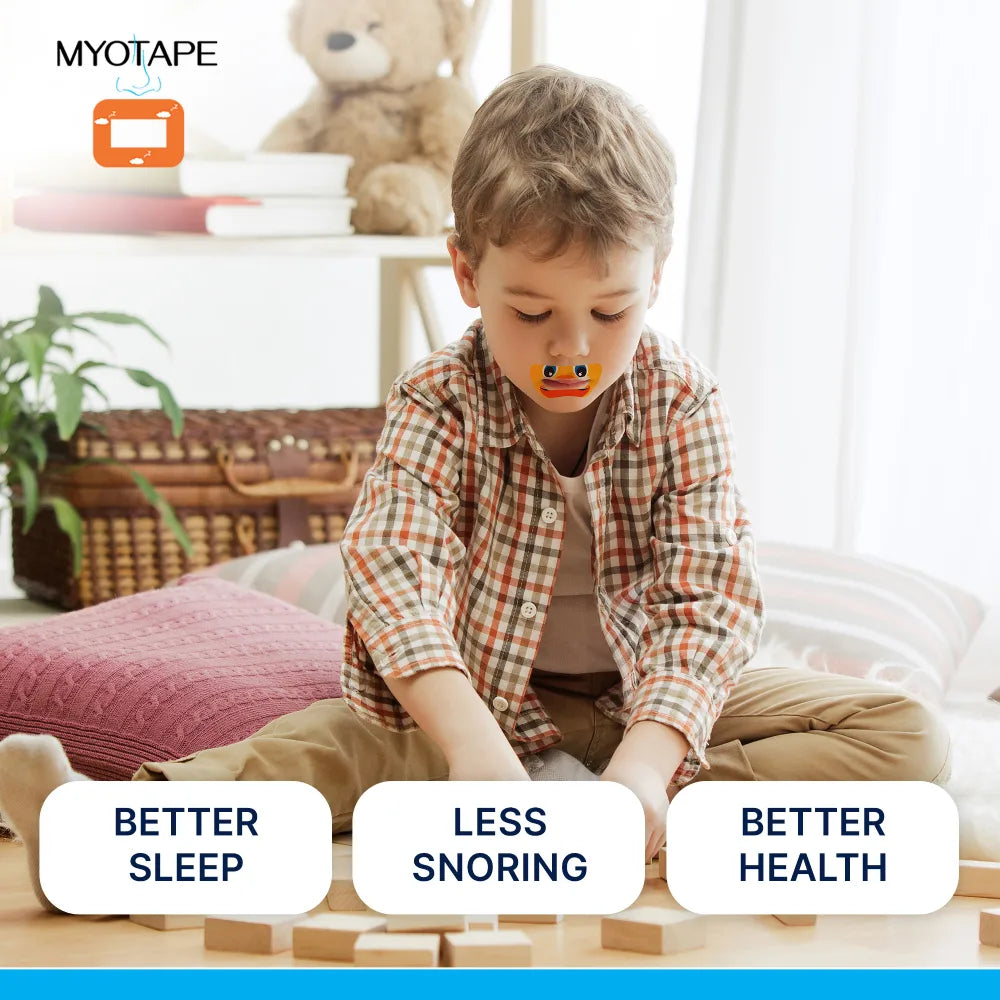
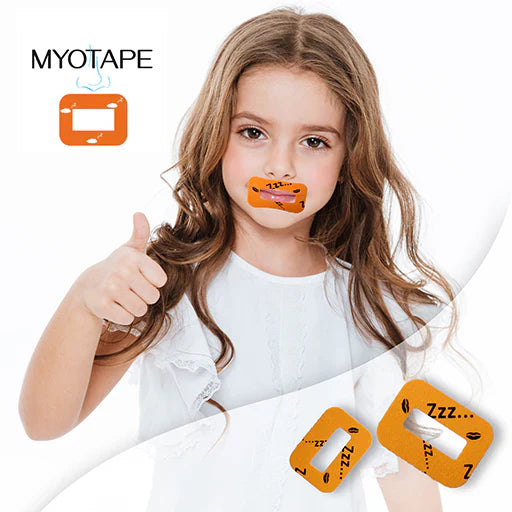
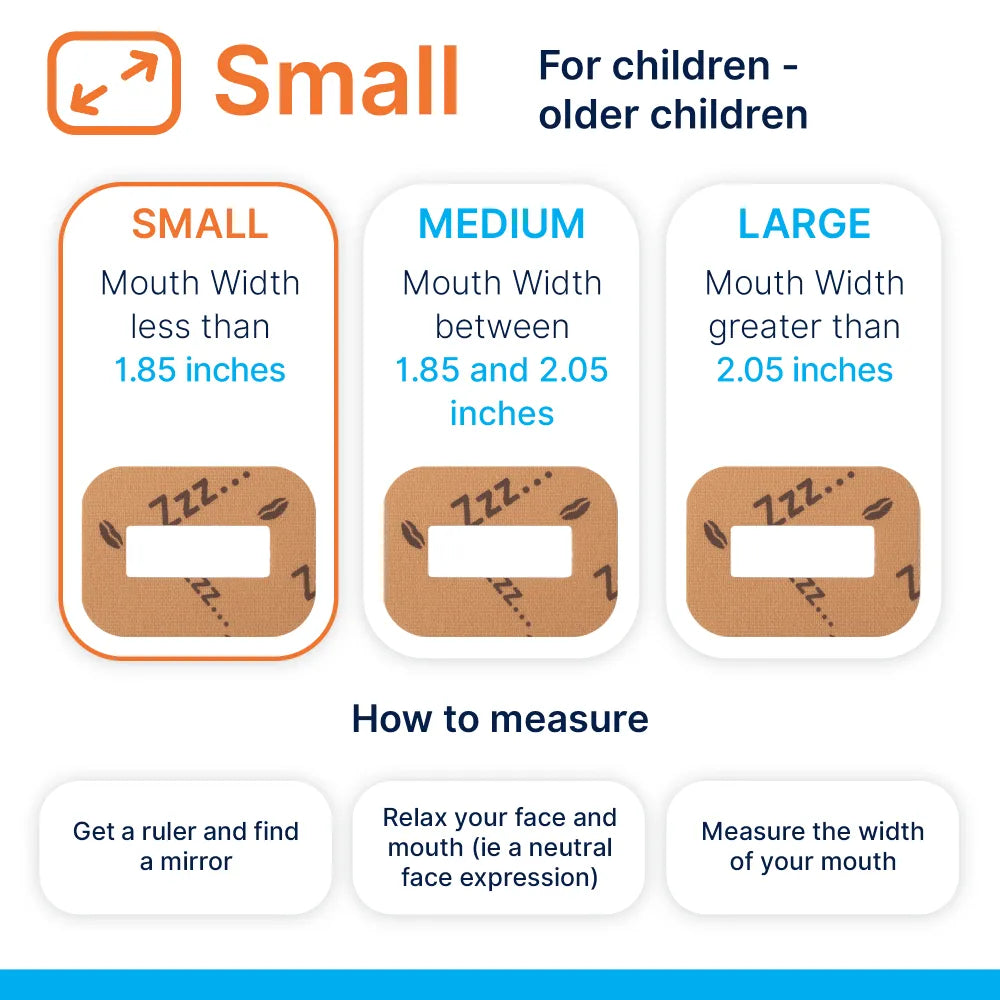
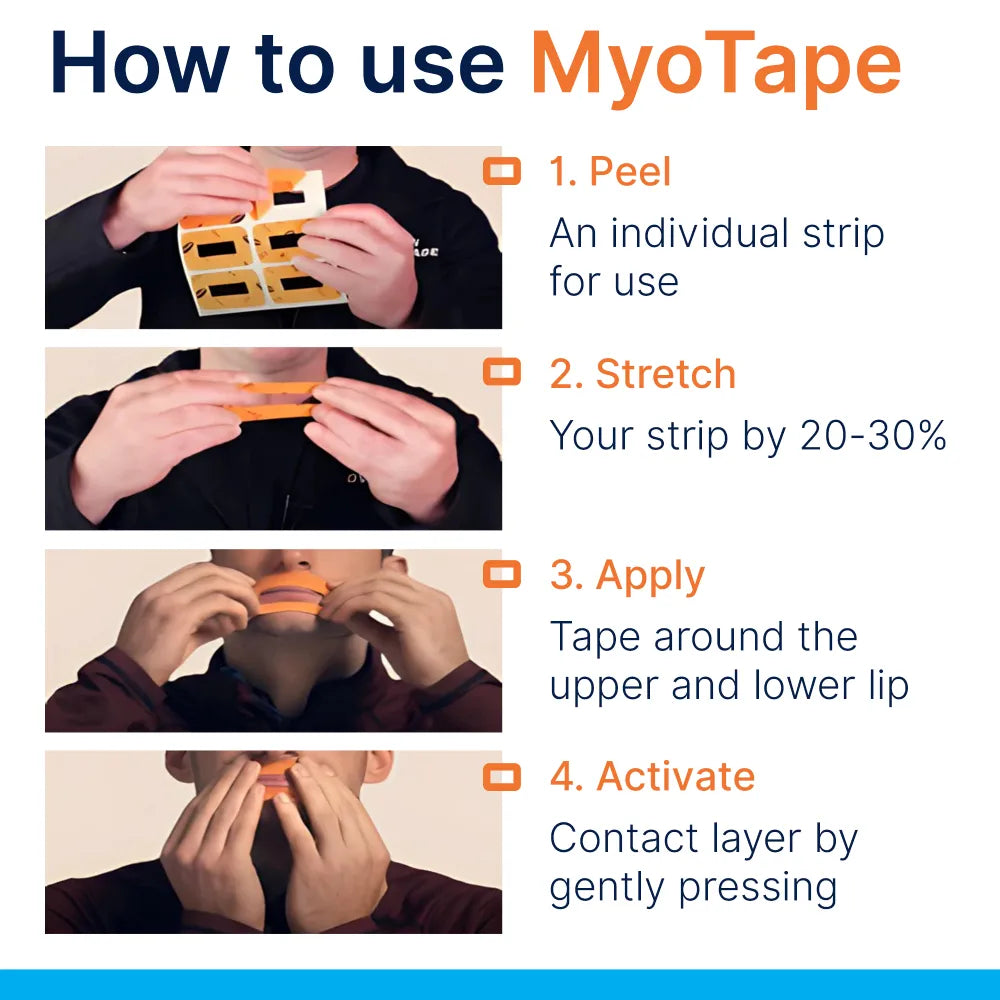
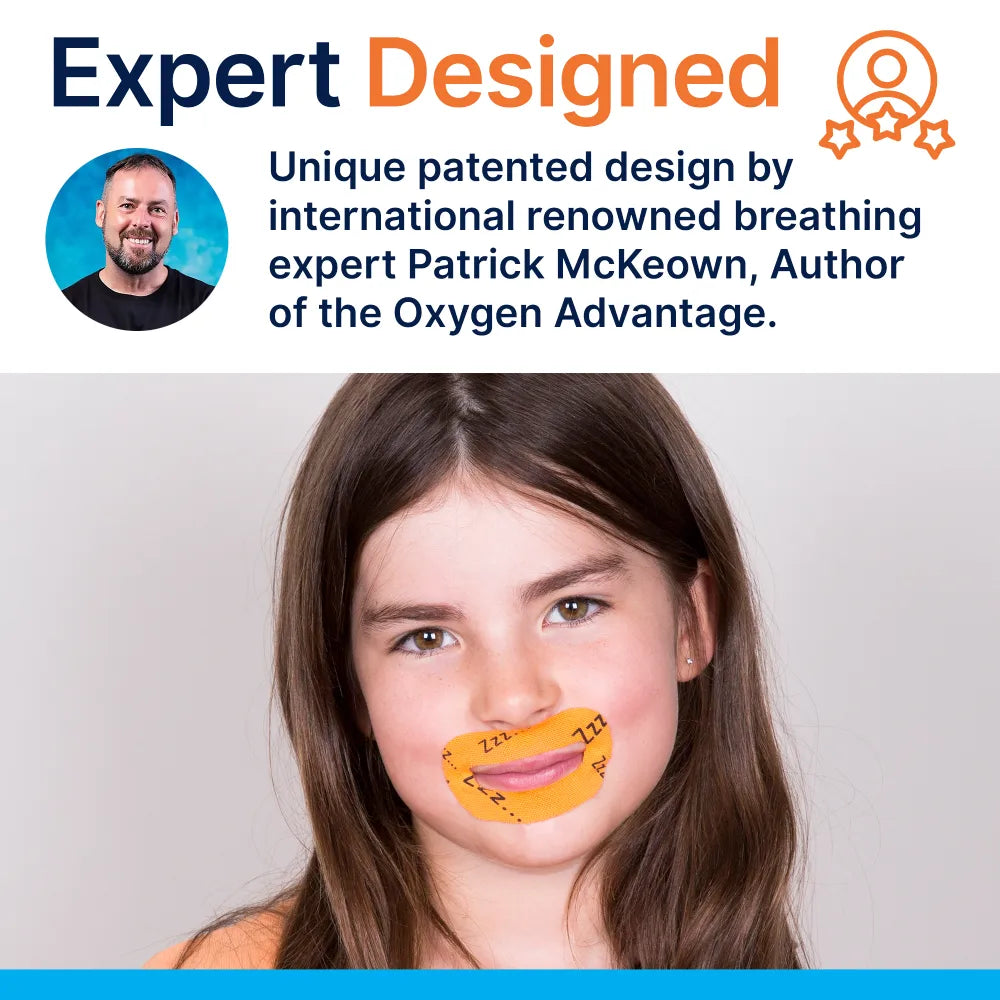
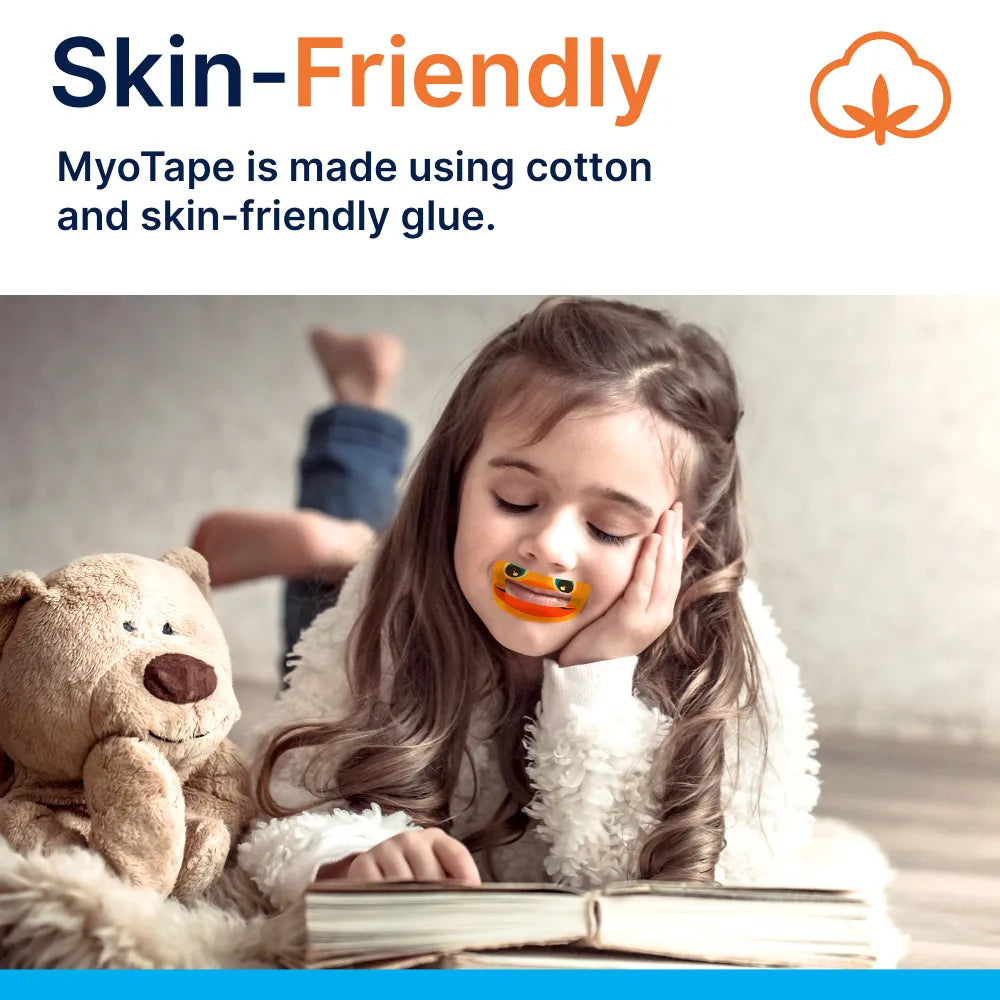
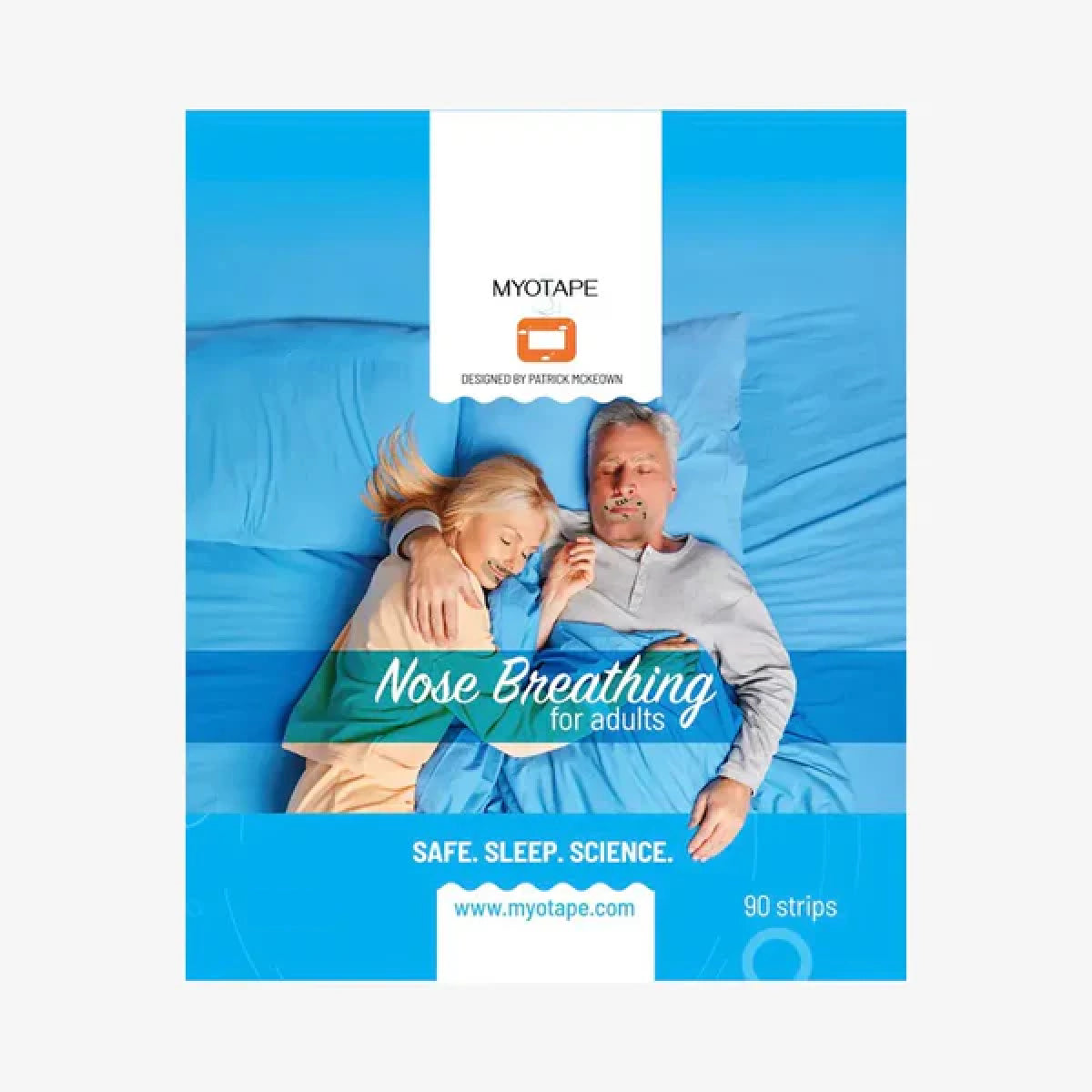
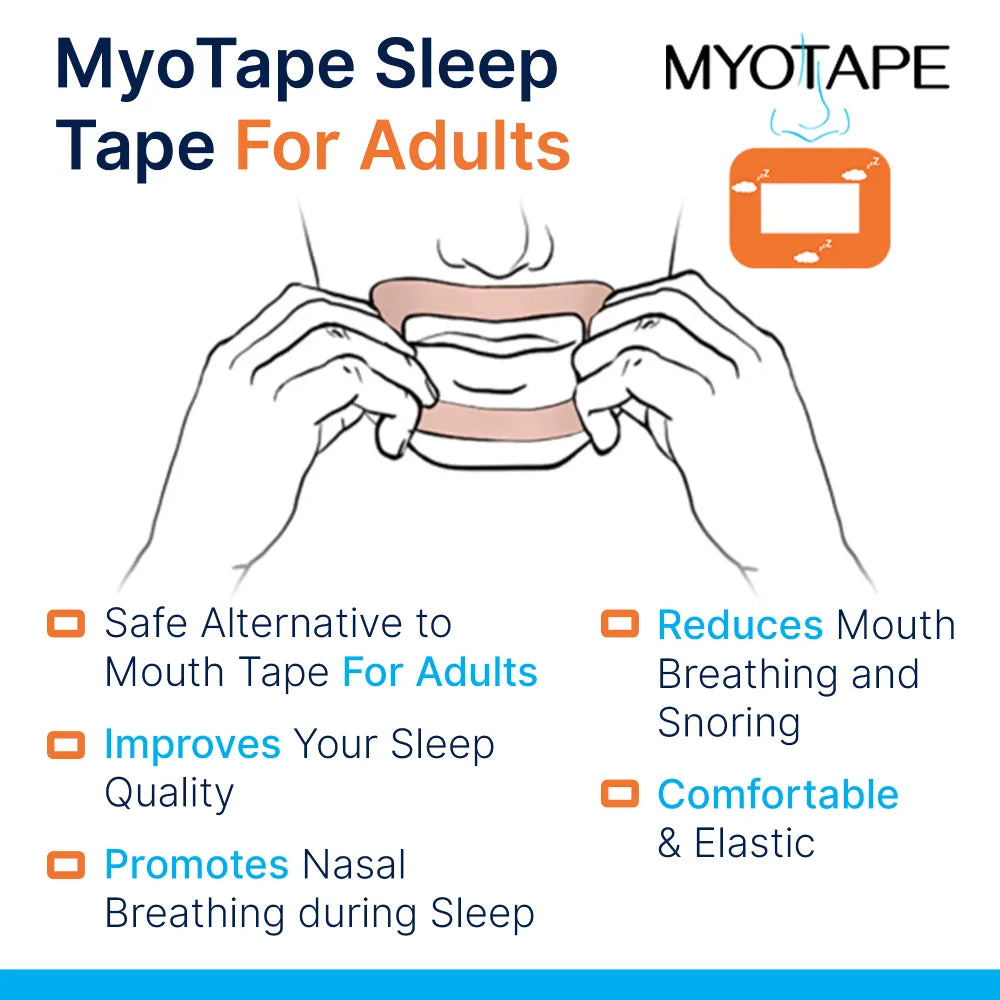

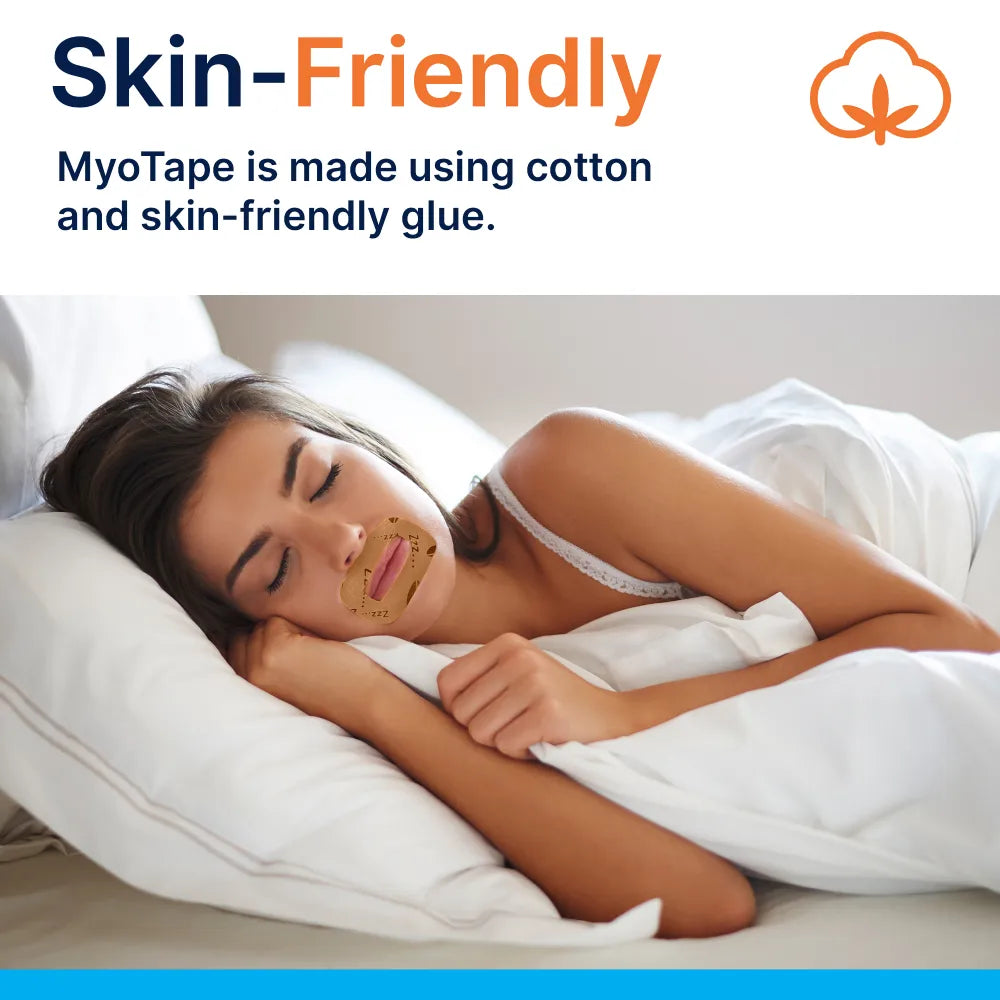
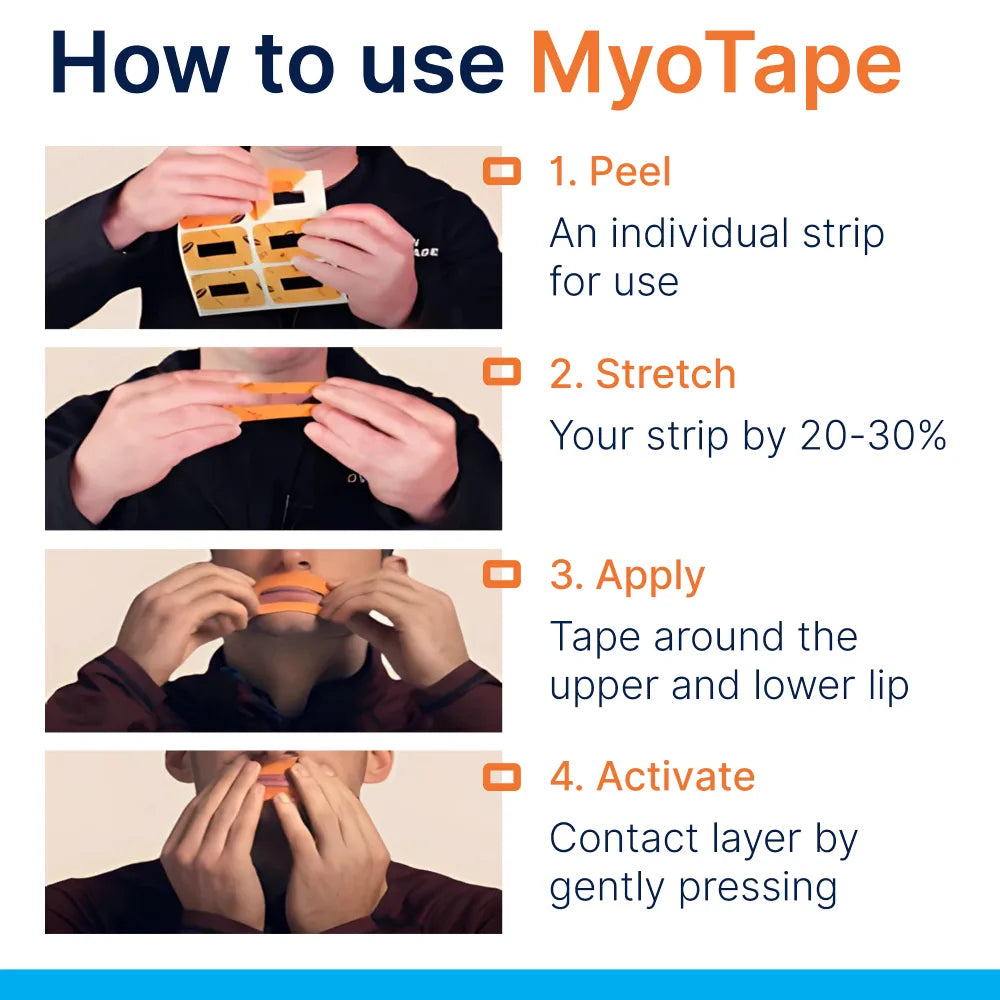
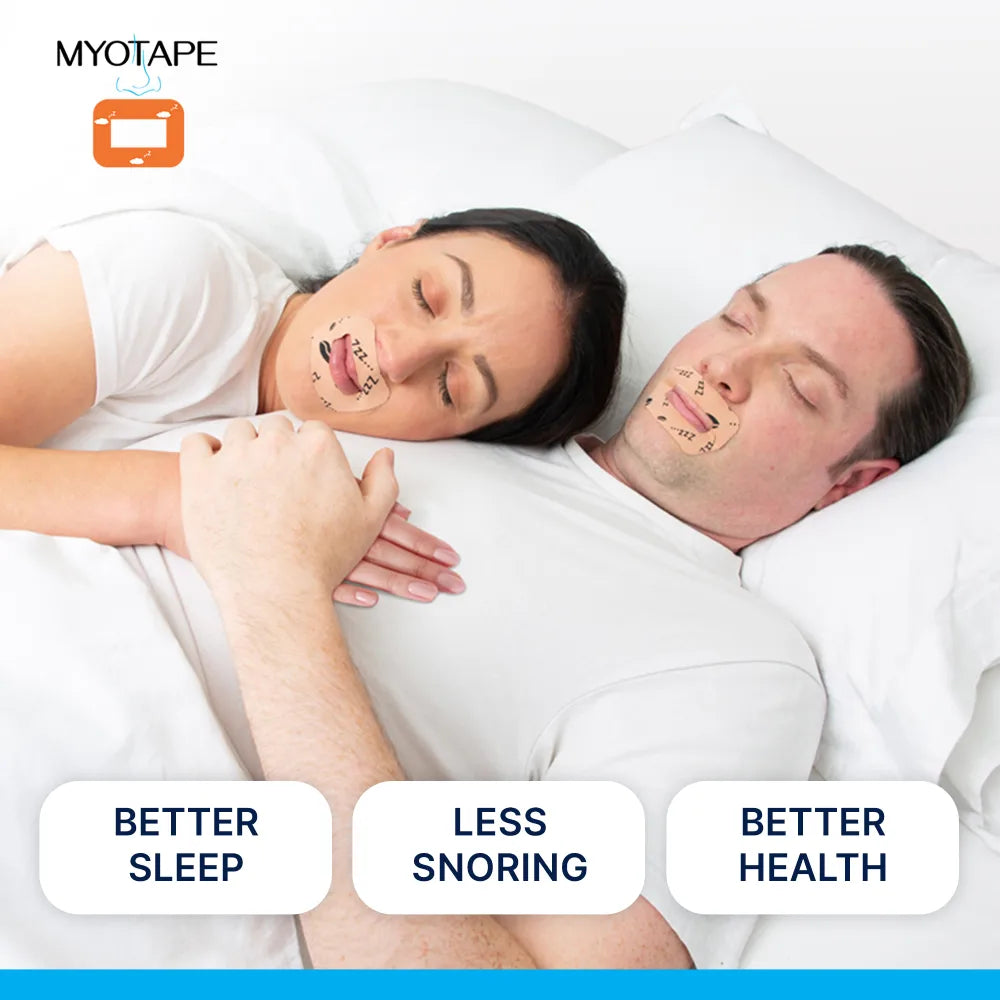
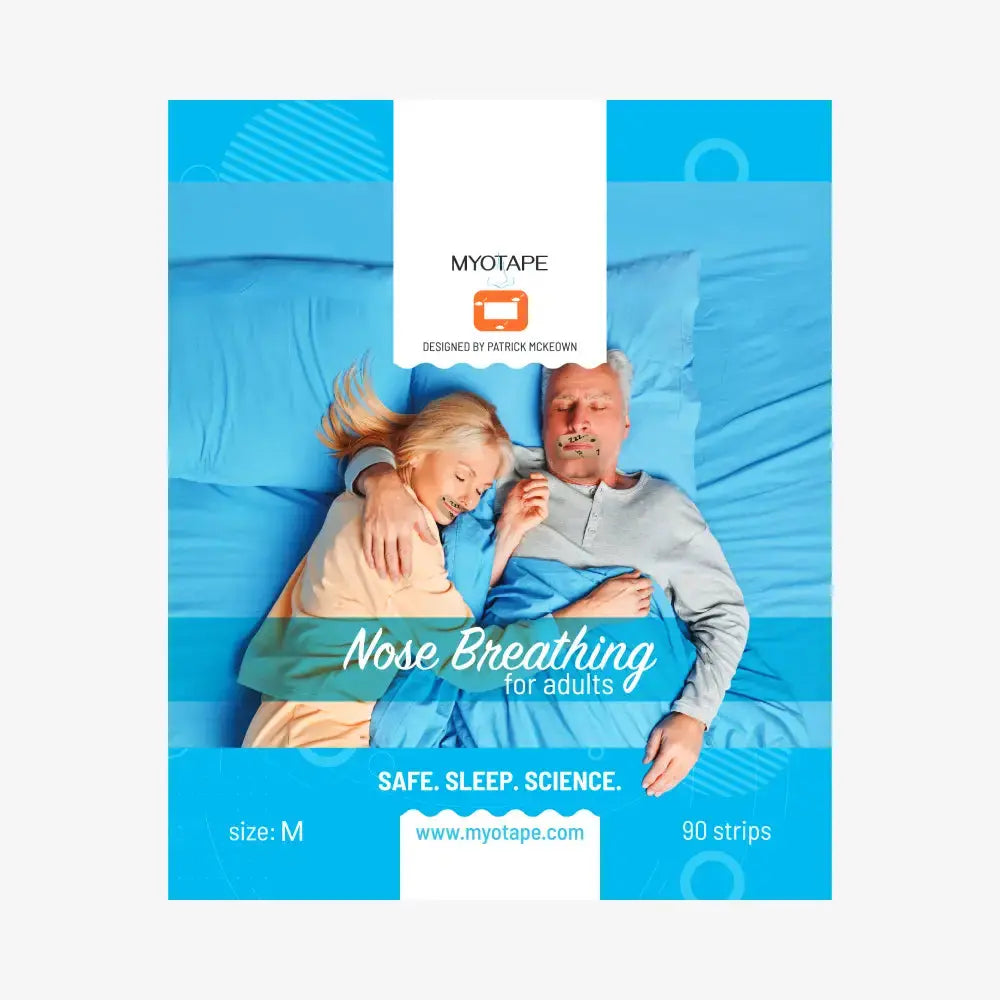
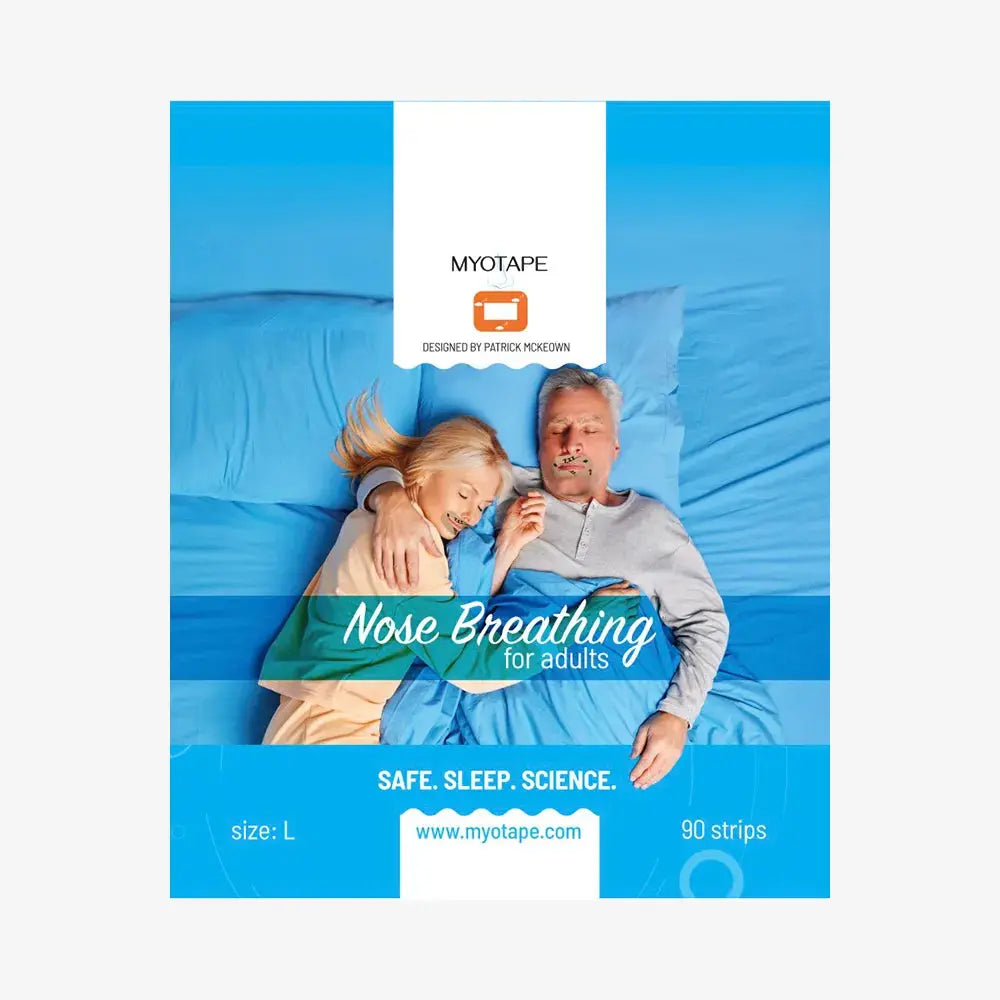
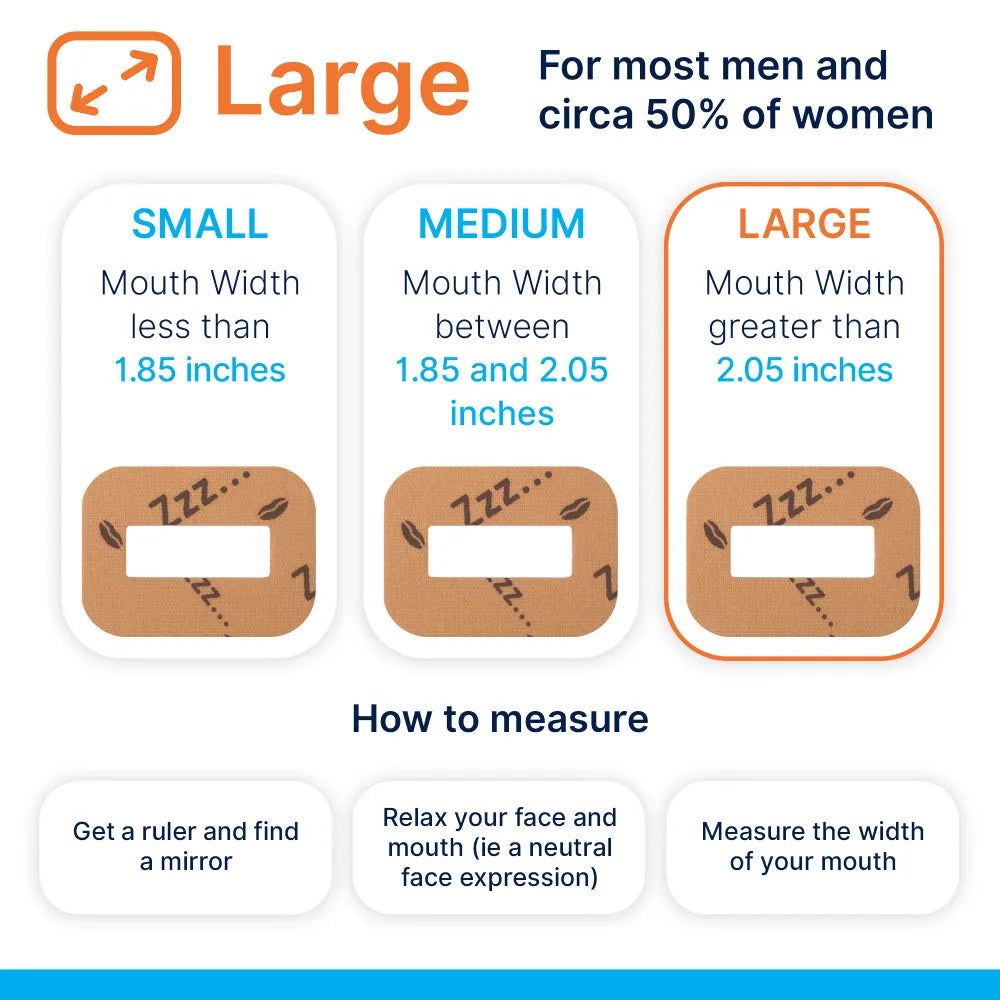
0 comments